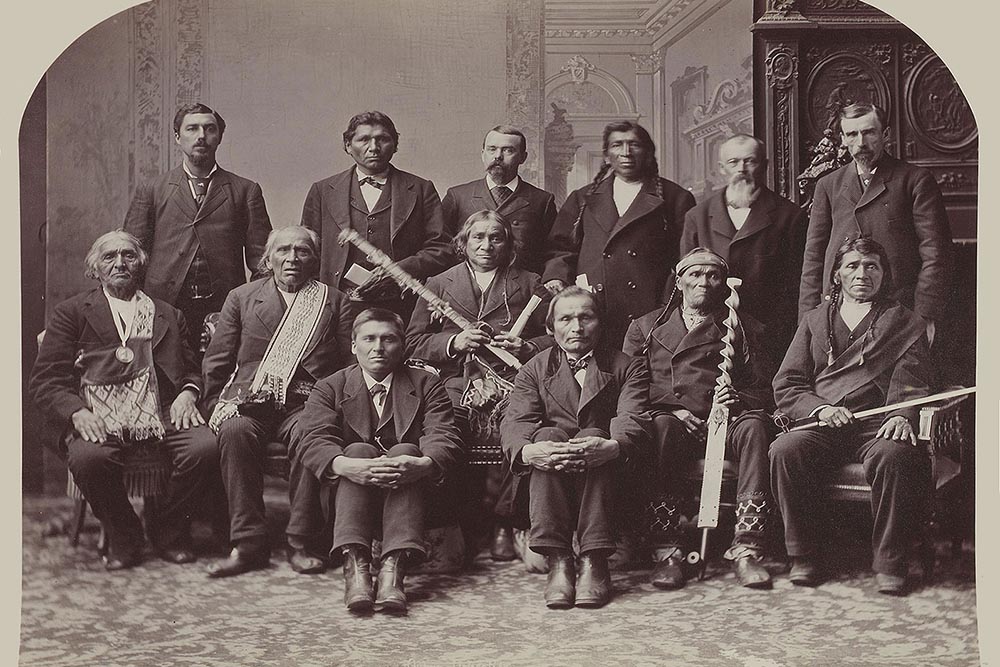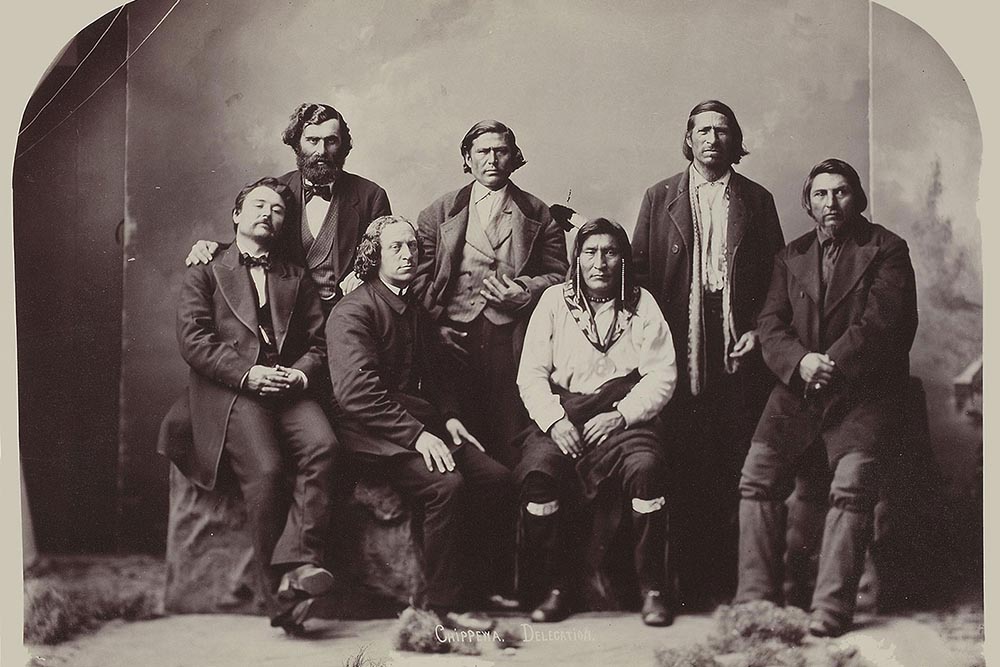
- Details
- By Andrew Kennard
WASHINGTON — A $59 million settlement in Peltier v. Haaland, a class action lawsuit alleging trust fund mismanagement and failure to account by the Department of the Interior, will go to four tribes located in the Midwest and Northwest United States and more than 39,000 beneficiaries.
On June 10, the United States District Court for the District of Columbia finalized the settlement, which was reached in the Court of Federal Claims with the Chippewa Cree Tribe of the Rocky Boy’s Reservation of Montana, the Turtle Mountain Band of Chippewa Indians of North Dakota, the Little Shell Tribe of Chippewa Indians of Montana, and the White Earth Band of Chippewa Indians of Minnesota, the Interior Department announced. The tribes were represented by the Native American Rights Fund (NARF), according to the website designated for the lawsuit.
Want more Native News? Get the free daily newsletter today.
“It took them way too long and it’s way too little,” said Gerald Gray, Chairman of the Little Shell Tribe of Chippewa Indians.
The lawsuit has its roots in land ceded by the Pembina Band of Chippewa Indians to the U.S. government in unfair treaties throughout the 19th century.
On Oct. 2, 1863, the Red Lake and Pembina Bands ceded about 7.5 million acres of land in the Red River region of North Dakota and Minnesota to the federal government, according to a 1971 report from the Committee on Interior and Insular Affairs and a 1982 report from the Senate Committee on Indian Affairs.
In 1905, the Pembinas ceded roughly 10 million acres of land west of the Red River area to the government for a price of 10 cents an acre as part of what is known as the “Ten Cent Treaty,” according to the 1982 report. The report said 8 million acres of the ceded land “extended from the present day north central part of North Dakota to the Canadian border.”
In 1964 and 1980, the Pembinas were awarded additional compensation for the land ceded in the 1863 treaty and more than 8 million acres of the land ceded in the “Ten Cent Treaty,” respectively, according to the lawsuit website and the 1982 report. These funds were put into trust in the Pembina Judgement Fund (PJF).
At the request of tribal leaders and with the approval of Congress, per capita payments from the fund ranging from $44 to $1,400 were made to eligible recipients in 1984, 1988, 1990, and 1994, according to an article published in the first 2006 issue of the NARF Legal Review.
In 1988, leaders of the Turtle Mountain Chippewa Band of Chippewa Indians “were dismayed at the overall lack of money available for distribution” in the per capita distribution, the article said. The tribe then requested an audit from the Interior Department Office of the Inspector General and “also hired independent accountants who confirmed to the tribe that on this issue, ‘you don't need an accounting firm, you need a law firm.’”
The Peltier v. Haaland class action breach of trust lawsuit was filed in 1992.
 Studio portrait of the Pembina Chippewa Delegation taken in Washington, D.C., in 1874. Photograph provided by the National Museum of the American Indian. (Photo/pembinasettlement.com)
Studio portrait of the Pembina Chippewa Delegation taken in Washington, D.C., in 1874. Photograph provided by the National Museum of the American Indian. (Photo/pembinasettlement.com)
Altogether, individual members of the class action will receive a total of $40,987,112, and the four tribes will receive a total of $8,437,273.60, according to the lawsuit website. Gray said the money for the tribes will go toward economic development and tribal administration. The lawsuit website estimates that individuals may receive as much as $1,440 depending on their eligibility.
The Interior Department noted that this settlement builds on settlements made during the Obama administration over tribal claims of federal trust mismanagement with more than 100 tribes that totaled over $3.7 billion, which it said was “the vast majority of outstanding claims.”
“The Department of the Interior is wholly committed to strengthening our government-to-government relationship with tribes, including reconciling long-standing disputes regarding proper management of tribal trust assets,” an Interior Department spokesperson said. The Department will continue to diligently execute its trust responsibility to federally recognized Tribes and enact policies that promote tribal sovereignty, self-determination and economic self-sufficiency.”
To learn more about the class action, or to determine whether you’re a member of the settlement class, visit the Pembina class action website.
More Stories Like This
Native News Weekly (August 25, 2024): D.C. BriefsShowing Up When It Matters: Flanagan’s Response to Minnesota’s Immigration Crisis
Monday Morning: (February 23, 2026): Articles You May Have Missed This Past Weekend
Native American Students Lead Protest Against ICE Presence at Haskell Indian Nations University
Native News Weekly (February 22, 2026): D.C. Briefs
Help us defend tribal sovereignty.
At Native News Online, our mission is rooted in telling the stories that strengthen sovereignty and uplift Indigenous voices — not just at year’s end, but every single day.
Because of your generosity last year, we were able to keep our reporters on the ground in tribal communities, at national gatherings and in the halls of Congress — covering the issues that matter most to Indian Country: sovereignty, culture, education, health and economic opportunity.
That support sustained us through a tough year in 2025. Now, as we look to the year ahead, we need your help right now to ensure warrior journalism remains strong — reporting that defends tribal sovereignty, amplifies Native truth, and holds power accountable.
 The stakes couldn't be higher. Your support keeps Native voices heard, Native stories told and Native sovereignty defended.
The stakes couldn't be higher. Your support keeps Native voices heard, Native stories told and Native sovereignty defended.
Stand with Warrior Journalism today.
Levi Rickert (Potawatomi), Editor & Publisher

